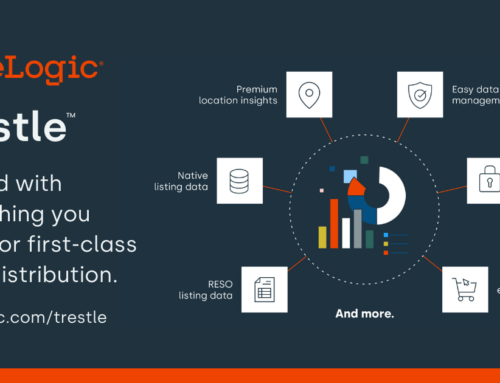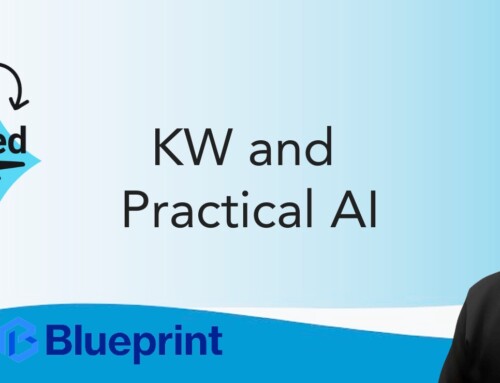 Mitch Skinner, of the law firm, Larson Skinner did a wonderful post on their website that drafted a framework around MLS Fair Input Guidelines. This is a major topic for our nation’s MLSs and it is time for collaboration and thought leadership. Let me begin by complimenting Skinner on his efforts. If you have not seen the post, you may want to buzz over and look at A Conversation About Fair Input Guidelines before contemplating this article. My hope is that this will be on the agenda at the upcoming fall conference of the Council of MLS in Orlando, hosted by My Florida Regional MLS.
Mitch Skinner, of the law firm, Larson Skinner did a wonderful post on their website that drafted a framework around MLS Fair Input Guidelines. This is a major topic for our nation’s MLSs and it is time for collaboration and thought leadership. Let me begin by complimenting Skinner on his efforts. If you have not seen the post, you may want to buzz over and look at A Conversation About Fair Input Guidelines before contemplating this article. My hope is that this will be on the agenda at the upcoming fall conference of the Council of MLS in Orlando, hosted by My Florida Regional MLS.
First of all, it is probably helpful to frame the conversation a little bit by defining what Fair Input Guidelines is all about. Since the very early days of multiple listing services, brokers (called MLS participants) and agents (called subscribers) have had alternatives on how listing information was contributed to the MLS for the purposes of cooperation and compensation. Listing input was first done by Association or MLS staff. Listing brokers would bring in listing sheets and drop them off. Over time, they dropped off photos too. As MLSs systems evolved, brokers could fax in their data, and eventually send files via email. Along the way, direct listing input to the MLS database emerged.
There is a requirement that brokers contribute their listings to the MLS – but the method is not necessarily singular. There are many MLSs which allow broker feeds. Last time I checked, Delaware brokerage Patterson Schwartz continues to provide a data feed to their MLS. Until a recent MLS conversion, Ebby Halliday Realtors of Dallas region also followed this process. Broker data feeds to MLSs are not a new thing.
Many MLSs have also developed alternative listing input software that is separate from the MLS system. MRIS/BrightMLS developed Keystone listing input. Zillow purchased Bridge Interactive, the listing input system popular in Atlanta where data is entered once and published to both Georgia MLS and FMLS at the same time. NorthstarMLS in Minnesota used Bridge but recently cut over to an in-house solution. External listing input software is not a new thing.
Another way that MLSs ingest data is from other MLS systems. This happens during a system conversion when the MLS software is running in parallel. Data is entered into one system and imported into the new system until members have had a chance to acclimate. After awhile, listing input moves over to the new system. This is usually the same process used in data sharing too. When MLSs exchange data with others, the data is not keyed in twice. Rather, a data connection is set up between the sharing MLSs. The largest data share was CARETS in Los Angeles whereby a handful of MLSs were sharing data. Again, this is not new.
These three circumstances warrant the conversation about fair input.
To be clear, there are no technical barriers facing MLSs to accept listings from another database. The only reason why an MLS would not want to accept a broker data feed is political. Brokers are still held to the high standard of listing compliance regardless of how the data gets into the MLS.
A Real Problem
Would you believe that most MLSs do not have documentation on their listing requirements? Most of the large MLSs do, but that is about it. I would be willing to wager that fewer than 50 MLS can hand the broker a document with all of their fields, all of the field enumerations, and their business rules.
Moreover, some MLSs believe that their data schema and business rules are their intellectual property that the broker is not permitted to know! I am fine with the IP. In fact I would insist upon it as a participating broker in an MLS. Without copyrighting the data schema, the MLS is limited in their ability to protect the data from theft. Every MLS has a unique selection, compilation, and arrangement. That’s good. But broker participants and their appointed technology vendors should be permitted to use the schema for the purposes of entering listings using a data feed.
Our industry is built around the spirit of collaboration. For our MLSs to thrive, they need to work together to develop solutions that benefit everyone. If our MLSs are disparate one-off step children that cannot socialize with other MLSs or their brokers, our industry will remain a disassociated and broken foundation. Please review Mr. Skinner’s thoughts. Discuss them in your broker groups and MLS forums. Join in the process of collaboration to make MLS great. Let’s Be Better!
Skinner outlines thoughtful guidelines – reposted from Larson Skinner:
- Contracts and access.Participants must authorize any access to MLS’s systems on behalf of participants or their subscribers. Each person or entity that has access must sign the applicable access agreements and use only the access credentials that MLS has assigned to the person or entity. No participant, subscriber, or affiliated third-party technology provider is entitled access to any MLS content through an AIM that it would not otherwise be entitled to if using MLS’s standard means. Participant’s and its third-party partners’ access to MLS’s systems is strictly for those purposes identified in applicable agreements.
- Intellectual Property Rights.MLS requires, at a minimum, certain licenses to intellectual property (like copyrights in photos and text) in order to perform its central functions. MLSs may also seek assignments of rights in certain cases to protect the MLS database from misuse and to help strengthen participants’ rights over use of their listing content. A participant’s AIM system must provide any information and confirmations necessary for the MLS to manage these licenses and assignments. A participant’s AIM system must obtain from subscribers and third parties like photographers any necessary licenses or assignments, or it must confirm to MLS that the participant has acquired the licenses or assignments by other means. These rights are to all content submitted through AIM systems, excluding content withheld as permitted by MLS rules, regardless of whether MLS systems are able to consume the content.
- Compliance with MLS business rules.Participants and subscribers in MLS have a say in the business rules that govern inter-broker cooperation and data-quality standards. Any AIM system must implement the business rules and policies that MLS adopts and are binding on participants. MLS will provide these rules to participants, subscribers, and their third-party partners subject to a license agreement. Participants, subscribers, and their affiliated third-party partners must acknowledge in the license agreement that the MLS’s business rules are proprietary, if applicable, and that they may not be shared with or used by any third party without the MLS’s consent.
- Documentation of exempt listings.Most MLSs require participants to submit certain types of listings to the MLS, or if the seller prefers the listing not to be disseminated in the MLS, the MLS usually requires documentation of the seller’s choice. A participant’s AIM should obtain from the participant any seller authorization required by MLS rules for withholding a listing or it should confirm to MLS that the seller has provided this authorization to participant. In the alternative, the participant may convey this information to MLS by other means designated by the MLS.
- Unexpected consequences. MLS reserves the right to suspend all AIM systems, particular AIM systems, or particular systems in relation to particular participants or subscribers, if MLS determines that unexpected consequences of the use of the applicable AIM systems will harm MLS’s listing input objectives. All agreements regarding AIM with MLS will permit it to take this action, if necessary.
- Competition and MLS.MLS is committed to competing with similar services and facilitating competition in the marketplace. MLS is not required, however, to assist its competitors to its own detriment, and the detriment of MLS’s pro-competitive functions. Therefore, in the event that MLS concludes an AIM functions to harm MLS, MLS may choose to suspend the AIM, so long as that action is consistent with law, policies and agreements to which MLS is subject.
- Support and training.MLS does not provide technical or system support or training for a participant’s AIM. MLS will ensure its systems meet applicable industry standards, like RESO compliance, but participants are responsible for their own AIM systems.




